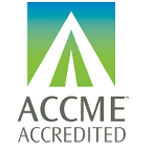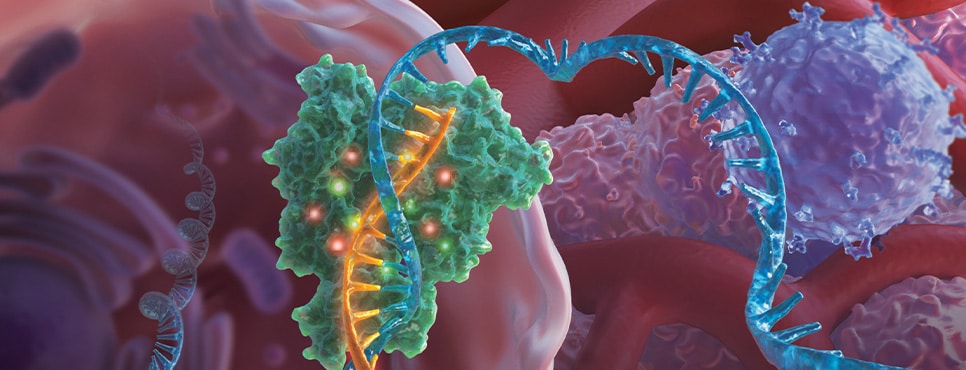Continuing Medical Education
Accreditation Statement

The American Association for Cancer Research (AACR) is accredited by the Accreditation Council for Continuing Medical Education (ACCME) to provide continuing medical education activities for physicians.
Credit Designation Statement
AACR has designated this live activity for a maximum of 17.0 AMA PRA Category 1 Credit(s)™. Physicians should only claim credit commensurate with the extent of their participation in the activity.
Credit certification for individual sessions may vary, dependent upon compliance with the ACCME Accreditation Criteria. The final number of credits may vary from the maximum number indicated above.
Claiming (CME) Credit
Physicians and other health care professionals seeking AMA PRA Category 1 Credit(s)TM for this live continuing medical education activity must complete the online CME Request for Credit Survey by December 30, 2024. Certificates will only be issued to those who complete the survey. Your CME certificate will be sent to you via email after the completion of the activity.

Successful completion of this CME activity, which includes participation in the evaluation component, enables the participant to earn up to 17.0 Medical Knowledge MOC points in the American Board of Internal Medicine’s (ABIM) Maintenance of Certification (MOC) program. Participants will earn MOC points equivalent to the amount of CME credits claimed for the activity. It is the CME activity provider’s responsibility to submit participant completion information to ACCME for the purpose of granting ABIM MOC credit.
To receive ABIM MOC, participants must request MOC in the CME Request for Credit Survey and complete all questions. Once these steps are completed, AACR will submit your completion information via the ACCME’s Program and Activity Reporting System for the purpose of granting MOC points.
Statement of Educational Need, Target Audience, and Learning Objectives
Focusing on RNAs as drivers, targets, and therapeutics in cancer can significantly benefit physicians and scientists by providing them with new tools and insights for diagnosis, treatment, and research. For physicians, understanding RNA-driven mechanisms can lead to the development of more accurate diagnostic tests and personalized treatment plans, improving patient outcomes by targeting specific cancer-related RNA profiles. For scientists, investigating RNA’s role in cancer deepens our knowledge of tumor biology and can lead to the discovery of novel drug targets and therapeutic strategies. This research could also accelerate the development of RNA-based therapies, such as RNA vaccines or antisense oligonucleotides, offering more effective and targeted treatment options. Overall, this approach enhances the precision of cancer care and fosters innovation in cancer research and treatment.
The conference promises to be an illuminating gathering focused on RNAs as pivotal drivers, targets, and therapeutics in cancer. Plenary sessions will delve into cutting-edge research on identifying RNA drivers of cancer progression, targeting them for intervention, and leveraging RNA-based therapeutics and RNA vaccines, alongside discussions on computational methods for uncovering RNA-cancer connections. This conference provides the opportunity to engage in conversations about translating RNA-focused discoveries into clinical applications and personalized cancer treatments. Participants will join leading researchers, clinicians, and industry experts for an insightful exchange of ideas and advancements at this transformative event shaping the future of cancer therapy.
Professional Practice Gap Analysis
While there is significant research on RNA functions in cancer, translating these findings into clinical practice can be challenging. Many physicians and scientists may not be fully up to date with the latest advancements in RNA-based technologies, such as CRISPR-Cas9 RNA editing, RNA vaccines, and RNA-targeted therapies. There is ongoing research into RNA biomarkers for cancer diagnosis, prognosis, and treatment response. As RNA-based therapies and diagnostics move closer to clinical use, there are important ethical and regulatory considerations to address. Advances in RNA research often require collaboration across multiple disciplines, including molecular biology, bioinformatics, and clinical oncology. This conference would foster interdisciplinary interactions, promoting collaborative approaches to addressing these complex challenges.
After participating in this CME activity, physicians should be able to:
- Explain the deregulation of RNA in cancer.
- Evaluate the utility of RNA drugs and delivery.
- Articulate the interaction of RNA drugs and the immune system.
- Interpret emerging and latest RNA technologies.
- Assess the utilization of RNA and immunotherapy.
Disclosure Statement
It is the policy of the AACR that the information presented at AACR CME activities will be unbiased and based on scientific evidence. To help participants make judgments about the presence of bias, AACR will provide information that Scientific Program Committee members and speakers have disclosed all financial relationships they have with ineligible companies whose primary business is producing, marketing, selling, re-selling, or distributing healthcare products or services used by or on patients. All of the relevant financial relationships for these individuals have been mitigated
Acknowledgment of Financial or Other Support
This activity is supported by Professional Educational Grants which will be disclosed at the activity.
Questions about CME?
Please read our frequently asked questions. If you still have questions contact the Office of CME at (215) 440-9300 or cme@aacr.org.
